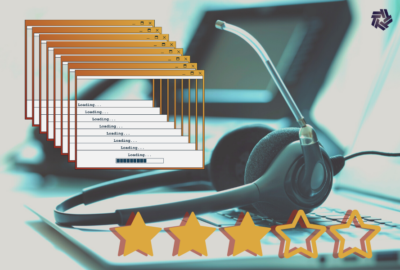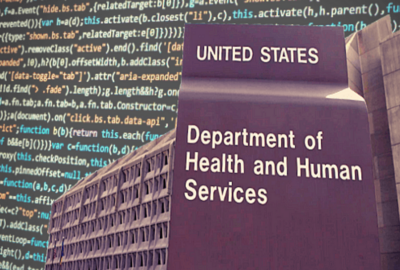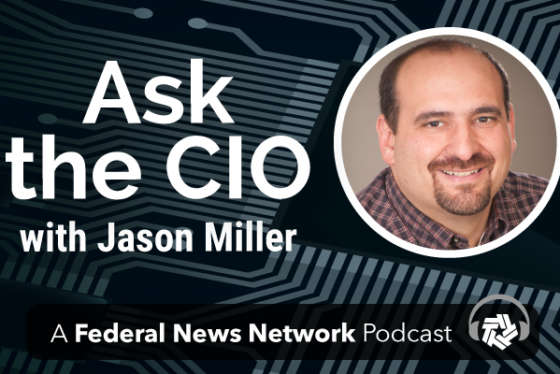NRC jumping into cloud, baby-stepping into mobile computing
Darren Ash, the Nuclear Regulatory Commission's CIO, said the agency is reviewing vendor responses to a sources sought notice in preparation to move systems to ...
wfedstaff | April 17, 2015 5:03 pm
The Nuclear Regulatory Commission is developing a strategy for a major move of its IT systems to the cloud.
It released a sources sought notice earlier this year asking vendors for insights into their cloud capabilities. The NRC now is reviewing those responses and figuring out its path forward.
Darren Ash, the NRC’s chief information officer, said the agency is looking at infrastructure-as-a-service, hosting and other services.
“We will have to figure out ultimately what makes the most sense in terms of the applications as well as information sensitivity,” he said. “We are not necessarily going to put an application that is sensitive out in the cloud. But we might look at something that by all the sense of the word should be public. Could that simplify reside in the cloud? It gave us a great deal of information about the capabilities that are out there now it’s a matter of what we want to do with them.”
Ash said he expects NRC to come up with an acquisition strategy and potentially a solicitation to buy cloud services later this summer. NRC already moved three applications to the cloud over the last two years, including its capital planning tool, its employee notification tool and its core financial system.
Ash said NRC is moving its financial system to a private sector cloud provider was a big step, and it shows just how far not only his agency, but many agencies have moved over the last few years in being comfortable with cloud services.
“We see the offerings and how they have matured,” he said about cloud services. “If this was two years ago, a lot of conversations about cloud would have been about security. The conversation we have now isn’t necessarily about security. We know that it will be important and we know about FedRAMP, and all the things we need to do. But the conversations we have, have more to do with what’s our exit strategy? Do we have a clear idea of how we would move to another provider, and making sure it is baked in to whatever agreement that we do enter into. It’s looking at the end.”
For the NRC, where cloud was two years ago, mobile is today — just in the exploratory stages.
Ash said the NRC is running a pilot program where it’s giving about 20 employees in the field one of two tablet computers.
“A lot of it is grounded in the work that they do and the capabilities the tablets do provide. Do they work? Do they make sense? What capabilities do we need to add?” he said. “We have a long list of requirements and expectations in terms of their work and we want to make sure that we line up nicely and of course are being responsive because we know that what we get out of this pilot and the feedback we get will play into how we ultimately support others parts of this agency.”
Currently, employees are using the tablets for only email, contacts and calendaring, but in phase two of the pilot, Ash said, NRC will expand the capabilities to upload and download data and review documents.
The pilot is using government furnished devices. NRC has a bring-your-own-device (BYOD) policy and is testing that concept as well. Ash said more than 500 people are taking part in the BYOD pilot where employees can voluntarily give up their government-issued cell phone or other device.
“What we used it for is to learn about mobility, what’s necessary to support it and the capabilities that we need to ultimately implement,” he said. “There’s two sides of it. There’s a secure container that contains only the agency stuff. And then the other side is mine. Should I lose the device, the agency has the ability to remotely wipe the secure container with the agency stuff, but my personal stuff would still be there.”
Ash said once the BYOD pilot is completed the NRC would evaluate how it worked and what steps are necessary to expand it to more employees.
“You have to be best prepared to support this for the long haul in terms of the resources, whether it’s the helpdesk, the tools and the technology,” he said. “What I like about what we’ve been doing is we are less focused on the products because the products will change over time. We’ve been focused on the work because ultimately that work is not going to change dramatically.”
RELATED STORIES:
New security standard to boost agency trust, use of mobile devices
NRC taking financial system to the cloud
Copyright © 2024 Federal News Network. All rights reserved. This website is not intended for users located within the European Economic Area.
Jason Miller is executive editor of Federal News Network and directs news coverage on the people, policy and programs of the federal government.
Follow @jmillerWFED







